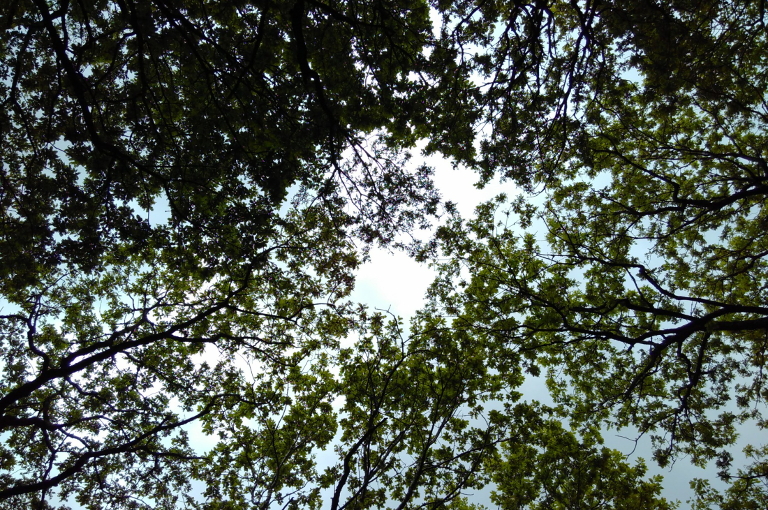One of the reasons I think our imaginations are in such a poor state in 2018 is that we spend so much time looking down. Look around you. On the bus, on the train, in the street. Our eyes are locked down to our screens, our attention elsewhere. So I want to share with me something that I find really helps.
Our smartphones are now such a ubiquitous part of our lives that they have taken over our dreaming time, our spacey, wandering along moments, our moments where we compose, meditate, allow ourselves to lose ourselves. I love the words of Austrian writer Hugo von Hofmannsthal who, in his 1902 ‘Chandos Letter’, wrote:
“A watering can, a harrow left in the fields, a dog in the sun, an ugly church yard – all these things can become a receptacle of my revelation. Each of these objects and thousands of other similar ones, which one normally merely glances over with indifference can, for me personally, at any one moment – but in no way controlled by myself – take on an exalted and stirring character”.
Yet the smartphone in our pocket often intervenes, putting prophylactic layers between ourselves and experiencing the moment we’re in. As Dr Larry Rosen and Adam Gazzaley put it in the brilliant book ‘The Distracted Mind: Ancient Brains in a High-Tech World’, smartphone technologies “leave little time for reflection, deep thinking, or even just sitting back and letting our random thoughts drive us to places we might not have gone while immersed in directed thinking”.
When I’m out, walking the dog, walking in the woods, I like to look up. Sounds kind of obvious, but looking up in a forest is amazing. It’s another world. I first got the idea when I did an Earth Walk, a brilliant activity developed by Earth Education, where one of the activities is to walk, in silence, in a forest, looking down into a mirror that you are carrying. It allows you to see and experience that wood in a way you never have before. It’s amazing. Try it.

When you look up you’ll see such beautiful patterns, stunning patterns of light through the leaves. In Spring, a beech forest is like a stained glass dome, a study in green. In winter, the silhouettes of trees are just as beautiful. You might even see what Robert MacFarlane (one of the most fascinating people to follow on Twitter) recently called ‘crown shyness’, a phenomenon beautifully captured in this photo from Kottke.org.

Yet all too often, our response is to take a photo to put on social media, on Facebook, on Twitter, to share, rather than allowing what we are seeing to inspire us to create a poem, a doodle, a haiku. Taking a photo to put on Twitter requires about 20 seconds of our attention, creating a poem takes a lot more. As our attention spans fragment, the phone option becomes more predominant – that little hit of dopamine, that empty call out for validation.
But this short blog is nothing more than a plea to say next time you’re out, in the woods, in the park, look up. Look up and lose yourself. Don’t reach for your phone, reach for your imagination, your creativity, your inner Hugo von Hofmannsthal. And if you can find another blog today that suggests you do that, I’d be very impressed.
Here’s a taste of what you might see (from the occasions when I did the opposite of what I’ve just advised you and took photos…).














